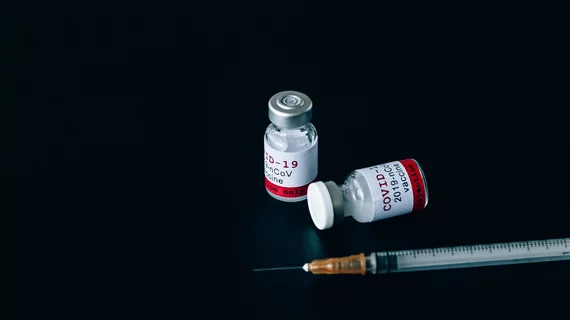Pharmaceutical giant Pfizer is expanding its not-for-profit products, widening its existing initiative with the aim of lowering health inequities.
The initiative is Pfizer’s commitment to An Accord for a Healthier World, which aims to provide the company's full portfolio of patented and off-patent medicines and vaccines on a not-for-profit basis to 1.2 billion people living in 45 lower-income countries around the world. The Accord was launched in May 2022, and Pfizer is now expanding it to include off-patent products, bringing the total offering from 23 products to around 500 products.
“In the months since the Accord’s launch, we have heard resoundingly from these leaders that access to a broader and more immediate scope of consistent, high-quality products is needed for meaningful and sustainable transformation,” said Pfizer Chairman and CEO Albert Bourla. “We believe this expansion of our product offering, combined with continued efforts to help address the barriers that limit or prevent access, will help us to achieve and even expedite our vision of a world where all people have access to the medicines and vaccines they need to live longer and healthier lives.”
The Accord portfolio includes chemotherapies and oral cancer treatments that have the potential to treat nearly one million new cancer cases in the initiative’s included countries each year. Antibiotics are also part of the portfolio and can help address the rising morbidity, mortality and costs associated with antimicrobial resistance (AMR), as well as prevent 1.5 million deaths from bacterial infections in hospitals and community health clinics that occur annually in these countries.
According to Pfizer, Rwanda has already received delivery of nine Pfizer medicines and vaccines for the treatment of certain cancers, infectious and inflammatory diseases. Pfizer has also provided professional healthcare education and training to support the delivery in collaboration with the Rwanda Ministry of Health. Late last year, Pfizer also deployed its first “Global Health Team” to the country to help identify opportunities for long-term supply chain optimization. Pfizer is collaborating with the Ministries of Health in Malawi, Ghana and Senegal for future opportunities.
The move comes as Pfizer was one of the pharmaceutical companies to come out on top from the COVID-19 pandemic after receiving approval for its vaccine and subsequent booster shots from the U.S. Food and Drug Administration (FDA). Pharmaceutical company Moderna also has one of the approved vaccines in the U.S. market, and the company recently indicated that it may raise the price of its vaccine to between $110 to $130. The move was slammed by Sen. Bernie Sanders (D-VT), who noted Moderna received billions in vaccine research and development from the U.S. government.

